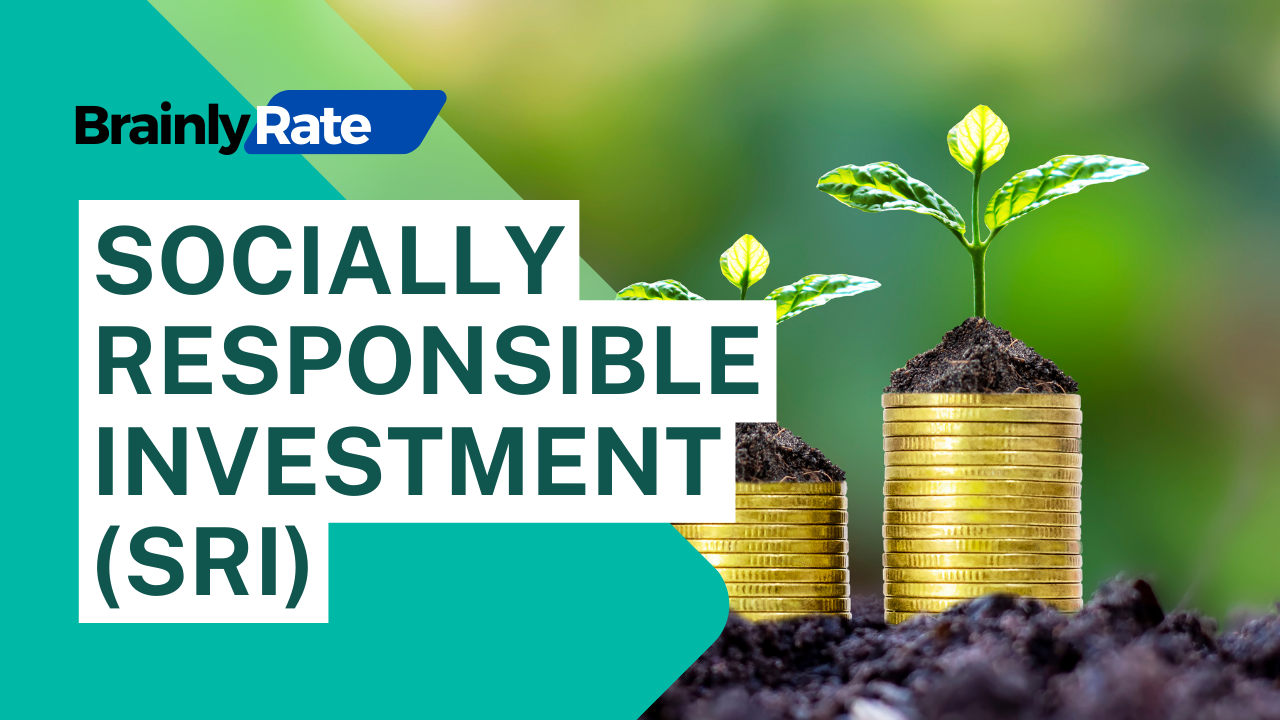Socially Responsible Investing (SRI) represents a transformative approach to investment, intertwining financial returns with social good. At its core, SRI seeks to generate both financial gain and positive social impact, aligning investors’ portfolios with their ethical values. This investment philosophy has evolved significantly over the years, transitioning from a niche concept to a mainstream strategy.
The evolution of SRI can be traced back to the 1960s and 1970s, marked by a growing awareness of social issues and the desire to address them through investment practices. Initially focused on avoiding investments in controversial industries, SRI has expanded to actively seek out companies that contribute positively to society. Today, SRI is not just a moral choice but also a strategic investment approach, reflecting a broader shift towards sustainable investing and corporate social responsibility.
Key Principles of SRI
Environmental, Social, and Governance (ESG) factors
The principles of SRI are deeply rooted in Environmental, Social, and Governance (ESG) criteria, which form the backbone of responsible investment decisions. These factors include:
- Environmental: Assessing a company’s impact on the environment, including its carbon footprint, energy efficiency, waste management, and resource conservation.
- Social: Evaluating how a company manages relationships with employees, suppliers, customers, and communities. This includes considerations like fair labor practices, diversity and inclusion, and community engagement.
- Governance: Looking at a company’s leadership, executive pay, audits, internal controls, and shareholder rights.
The Role of ESG in SRI
ESG factors play a crucial role in SRI by providing a framework to assess how a company’s operations align with sustainable and ethical practices. The integration of ESG criteria into investment analysis and decision-making processes allows investors to identify companies that are not only financially sound but also contribute positively to societal and environmental goals.
For a comprehensive overview of Socially Responsible Investing, Investopedia offers detailed insights into how these principles are applied in practice. Moreover, understanding the nuances of ESG factors and their impact on investment portfolios is critical. Resources like Morningstar’s analysis on ESG investing provide in-depth insights on ESG investment strategies, helping investors make informed decisions that align with their values and financial goals.
In the next sections, we will delve deeper into the historical context of SRI, its various types, and the strategies employed to implement these principles effectively in investment portfolios.
Historical Context and Growth of SRI
The journey of Socially Responsible Investing (SRI) is a testament to the evolving consciousness of investors towards more ethical and sustainable practices.
- Origins in the 1960s and 1970s: SRI’s roots can be traced back to the social upheaval of the 1960s and 1970s. During this era, investors began to question the moral implications of their investments, particularly in companies involved in the Vietnam War, apartheid in South Africa, and those contributing to environmental degradation. This period marked the birth of SRI as a formal investment strategy, with investors actively avoiding companies whose practices conflicted with their ethical beliefs.
- Growth and Current Trends: Over the decades, SRI has grown from a fringe concept to a mainstream investment strategy, driven by a growing recognition of the interconnectedness of social, environmental, and financial performance. Today, SRI is not just about avoiding harm but also about seeking out opportunities to contribute positively to society. The rise of ESG criteria has been pivotal in this growth, providing a structured way to evaluate companies on their ethical, social, and environmental impacts. The global SRI market has seen exponential growth, with assets under management in ESG funds reaching new heights.
Types of SRI
SRI has diversified into various forms, each with its unique focus and approach:
- ESG Integration:
- This approach involves the inclusion of ESG criteria into traditional financial analysis.
- Investors assess the potential impact of environmental, social, and governance issues on a company’s performance and long-term sustainability.
- Socially Responsible Investing:
- This form of investing goes beyond ESG integration by actively excluding or selecting investments based on specific ethical guidelines.
- It often involves screening out investments in industries like tobacco, firearms, and fossil fuels.
- Impact Investing:
- Impact investing seeks to generate positive, measurable social and environmental impact alongside a financial return.
- This approach is often associated with investments in renewable energy, affordable housing, and healthcare.
- Conscious Capitalism:
- Conscious Capitalism is a philosophy where businesses operate ethically while pursuing profits.
- It emphasizes the importance of serving all stakeholders involved, including employees, customers, and the environment.
For a deeper understanding of the evolution and types of SRI, resources such as Investopedia’s guide to SRI provide valuable insights. Additionally, exploring Morningstar’s analysis on ESG investing can offer a comprehensive view of how these principles are applied in modern investment strategies.
In the following sections, we will explore the strategies and approaches to implementing SRI in investment portfolios, along with the challenges and future outlook of this evolving field.
Strategies and Approaches in Socially Responsible Investing (SRI)
In the realm of Socially Responsible Investing (SRI), various strategies and approaches have been developed to align investments with ethical and sustainable values. These methods not only reflect an investor’s moral stance but also address the growing demand for sustainable development and ethical business practices.
SRI Strategies and Approaches
- Negative and Norms-Based Screening:
- Negative screening involves excluding investments in companies or sectors that do not align with specific ethical standards. Common exclusions include industries like tobacco, weapons, and fossil fuels.
- Norms-based screening refers to the selection of investments based on adherence to international standards and norms, such as the United Nations Global Compact or the OECD Guidelines for Multinational Enterprises. This approach ensures that investments are in line with global ethical and sustainability benchmarks.
- ESG-Focused Shareholder Activism:
- This approach involves investors using their shareholder rights to influence corporate behavior and policies towards better environmental sustainability, social equity, and governance practices.
- Shareholder activism can take the form of voting on shareholder resolutions, engaging in dialogue with company management, or public campaigning to bring about change in corporate practices.
- Sustainable Fixed Income Funds:
- These funds invest in fixed-income securities that are selected based on ESG criteria. They offer investors the opportunity to contribute to sustainable initiatives while receiving steady income.
- Investments might include green bonds, which finance projects with environmental benefits, or social bonds that fund initiatives with positive social outcomes.
Each of these strategies plays a crucial role in shaping a more responsible and sustainable investment landscape. By incorporating these approaches, investors can contribute to positive societal change while seeking financial returns, embodying the essence of impact investing and corporate social responsibility.
In the next section, we will delve into the implementation of SRI in investment portfolios, highlighting the challenges and potential solutions in this evolving investment paradigm.
Implementing Socially Responsible Investing (SRI) in Investment Portfolios
Implementing Socially Responsible Investing (SRI) in investment portfolios involves a strategic approach that balances ethical considerations with financial objectives. Here are key methods to integrate SRI effectively:
How to Implement SRI in Investment Portfolios
- Choosing ESG-focused ETFs:
- Investors can opt for Exchange-Traded Funds (ETFs) that specifically focus on companies excelling in ESG criteria.
- These ETFs provide a diversified exposure to a range of companies that meet high environmental, social, and governance standards, simplifying the process of ethical investing.
- Evaluating Companies for SRI:
- Conducting thorough research to evaluate a company’s commitment to sustainable practices and ethical operations is crucial.
- This involves looking beyond financial metrics to assess a company’s impact on the environment, its social responsibility, and the quality of its governance.
For more detailed guidance on selecting ESG-focused ETFs and evaluating companies for SRI, resources like Morningstar’s analysis on ESG investing offer valuable insights and tools.
Challenges and Criticisms of SRI
The implementation of SRI is not without its challenges and criticisms:
- Difficulty in Assigning ESG Scores:
- One of the main challenges in SRI is the subjective nature of ESG scoring. Different agencies may have varying criteria and methodologies, leading to inconsistencies in ESG ratings.
- This inconsistency can make it difficult for investors to make informed decisions based on ESG scores alone.
- Authenticity and Effectiveness of ESG Strategies:
- There is skepticism regarding the authenticity and effectiveness of some companies’ ESG strategies. The concern is that some may engage in “greenwashing,” where they exaggerate or misrepresent their commitment to sustainable practices.
- Ensuring the authenticity of ESG claims requires investors to conduct in-depth research and possibly seek third-party verification of a company’s ESG practices.
The challenges in SRI underscore the importance of thorough research and critical evaluation in the investment process. For a deeper understanding of these challenges and how to navigate them, Investopedia’s guide to SRI provides comprehensive insights and strategies.
In the next section, we will explore the impact and future outlook of SRI, considering its growing significance in the global investment landscape.
Impact and Future of Socially Responsible Investing (SRI)
The impact and future of Socially Responsible Investing (SRI) are significant, with far-reaching implications for both the corporate world and investment trends.
Impact and Future of SRI
- Influence on Corporate Behavior:
- SRI has a profound impact on corporate behavior, encouraging companies to adopt more sustainable and ethical practices. This shift is driven by the growing demand from investors for transparency and responsibility in business operations.
- Companies are increasingly recognizing that sustainable practices can lead to better financial performance and reduced operational risks.
- Future Trends and Predictions:
- The future of SRI looks promising, with an expected increase in the integration of ESG criteria into mainstream investment strategies.
- Innovations in impact measurement and reporting are likely to enhance the effectiveness of SRI, making it an even more attractive option for investors.
FAQs
- What do you mean by socially responsible investment or SRI?
- Socially Responsible Investment (SRI) refers to an investment strategy that combines financial return with social good, focusing on companies that adhere to ethical, environmental, and social standards.
- What is SRI theory of socially responsible investment?
- The SRI theory posits that investors can positively influence societal and environmental change by choosing investments based on ethical and sustainable criteria, without compromising on financial returns.
- What is the SRI label for socially responsible investment?
- The SRI label is a designation given to investments that meet specific criteria for social responsibility and sustainability, indicating adherence to ethical practices and positive social impact.
- What is the concept of socially responsible investing?
- The concept of socially responsible investing involves choosing investments based on their potential to generate positive social and environmental outcomes, along with financial returns, thereby aligning investment decisions with personal values and societal goals.




